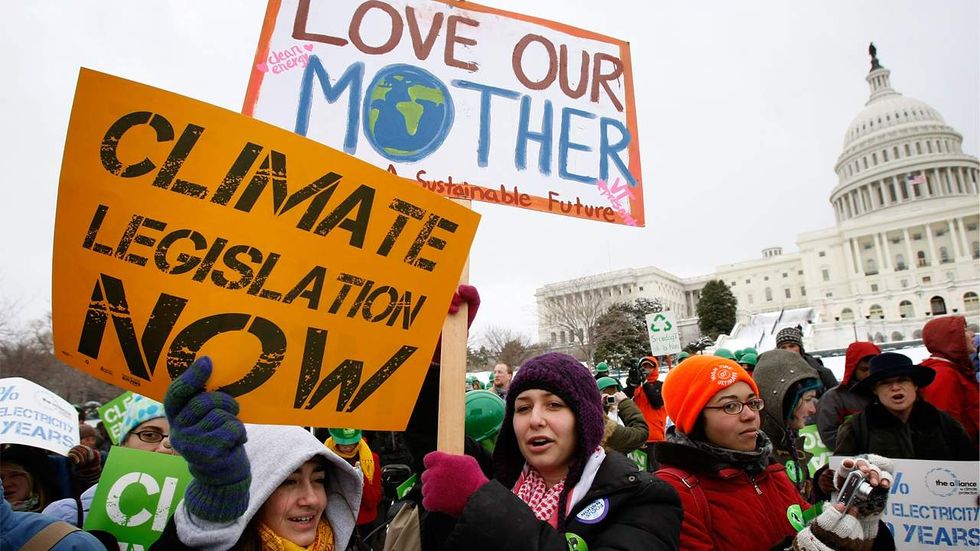A new peer-reviewed study by scientists and a statistician claims to reveal that “nearly all” of the warming shown in current temperature datasets from NASA, the National Oceanic and Atmospheric Administration and the Met Office in the United Kingdom are the result of adjustments made to the datasets after temperatures were recorded, calling into question just how much warming is real and how much is pure fantasy.
In the report, titled “On the Validity of NOAA, NASA and Hadley CRU Global Average Surface Temperature Data and the Validity of EPA’s CO2 Endangerment Finding,” authors James P. Wallace III, Joseph S. D’Aleo and Craig Idso examine the accuracy of global average surface temperature data.
“The objective of this research was to test the hypothesis that Global Average Surface Temperature (GAST) data, produced by NOAA, NASA, and HADLEY, are sufficiently credible estimates of global average temperatures such that they can be relied upon for climate modeling and policy analysis purposes,” the authors wrote.
Many people misunderstand how global temperature is calculated. As the authors of the study note, GAST data is not simply the raw temperature recordings. Rather, the data is adjusted after it is recorded to account for various problems, such as “contamination by urbanization.” Because many temperature recordings come from urban areas, where numerous factors affect temperature readings, they need to be adjusted to more accurately reflect the true temperature.
Critics of the most widely used global average surface temperature datasets have said they think these adjustments have been exaggerated to favor the view humans are causing climate change.
To test the validity of the GAST data adjustments, the researchers examined other historical data and known cyclical patterns to determine whether the adjustments were appropriate.
“As a result, this research sought to validate the current estimates of GAST using the best available relevant data,” the authors wrote. “This included the best documented and understood data sets from the U.S. and elsewhere as well as global data from satellites that provide far more extensive global coverage and are not contaminated by bad siting and urbanization impacts.”
The researchers concluded based on their study that “the three GAST data sets are not a valid representation of reality.”
“The conclusive findings of this research are that the three GAST data sets are not a valid representation of reality,” the authors wrote. “In fact, the magnitude of their historical data adjustments, that removed their cyclical temperature patterns, are totally inconsistent with published and credible U.S. and other temperature data. Thus, it is impossible to conclude from the three published GAST data sets that recent years have been the warmest ever — despite current claims of record setting warming.”
“Nearly all of the warming they are now showing are in the adjustments,” meteorologist Joe D’Aleo, who co-authored the study, said to the Daily Caller News Foundation. “Each dataset pushed down the 1940s warming and pushed up the current warming.”
“You would think that when you make adjustments you’d sometimes get warming and sometimes get cooling. That’s almost never happened,” D’Aleo said.
The noted climate-skeptic website Watts Up With That? called the study a “bombshell.”
If the researchers’ findings are accurate, it would mean that the global temperature data most often used to show increasing temperatures are potentially not accurate and that the true global temperature is likely lower than is currently reported, further undermining climate-change alarmists’ claims.



